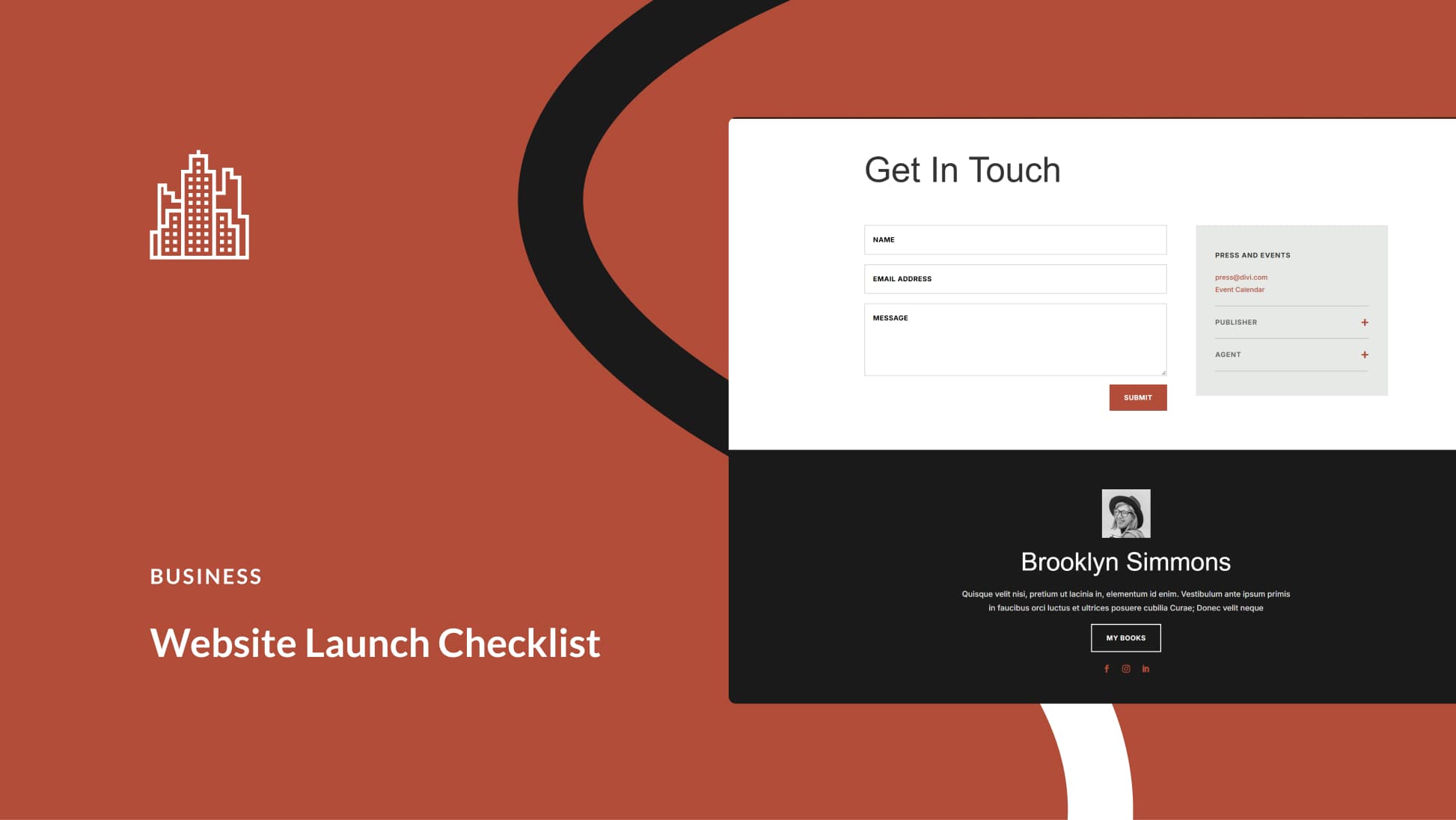We’ve all made a rookie mistake at work that still makes us cringe. Sent a department-wide email with a typo that entirely changes the context. Spilled coffee on a crisp white shirt right before an important meeting. Mumbled something incoherent when greeting an important client.
Work anxiety and mistakes come from the desire to impress. That doesn’t make you awkward; it makes you human. Most of the time, the other person isn’t thinking, “What a loser!” Instead, they’re thinking, “Whew, other people do that too!”
What if your mistake was more serious, though? Your boss overheard you gossiping about her with another employee. You spoke publicly about private problems the company is having. You lost your biggest client.
Nobody is immune to rookie mistakes, big or small. You’ll make them at the beginning of your career, and you’ll make them years later when switching jobs or learning new skills. Prevent them from happening, then learn what to do when they happen anyway.
5 Rookie Mistakes You’ll Almost Definitely Make
You’re going to misstep at some point, and it’s possible that you’ll make one of the blunders on this list. The good news? These errors are so common because a bunch of other people have made them, too.
Rookie Mistake #1: Asking Too Many Questions
When you’re starting a new job, everything is novel. Nothing will be familiar and everything will feel alien and confusing. You could spend all day asking questions. The person training you has been there for a long time. They don’t remember how much of their knowledge was unfamiliar at the beginning. They won’t explain everything in as much detail as you need.
Instead of asking question after question, which can impede your training, keep a notepad with a running list of questions. Many of them will be answered as you continue learning. Group the remaining questions by topic and ask them when you sit down with your trainer or boss at the end of the day.
Over-asking makes you seem like you can’t figure anything out on your own. You’ll need clarification on many aspects of the job, but you should show that you’re resourceful enough to figure some stuff out for yourself.
Don’t stay in the dark about questions you need or want the answers to, though. Once you’ve exhausted other possibilities, go ahead and ask. Direct your question at the appropriate person. Your co-worker who’s giving you a tour of the office isn’t the person to grill about the company’s vacation policy.
Rookie Mistake #2: Knowing It All
When you’re starting a new job, even if you’re in a new department at your current workplace, remember that you’re on their turf. Tread lightly at first. Even if you’re in a leadership role, nobody likes the newcomer who sweeps in, shakes everything up, announces that the current processes are dumb or inefficient, and then changes every single thing.
You don’t know everything there is to know about this specific company, team of workers or new role you’re in. Err on the side of humility; slowly make suggestions and changes. Don’t go so far the other way that you play dumb, though. You were hired for a reason and you bring something special to the role. Don’t scream your expertise from the rooftop, but if you’re asked for your suggestions, then by all means, offer them.
Rookie Mistake #3: Over-Explaining Everything You Do
To show how good you are at your new job and that your boss made an excellent decision by hiring you, it’s tempting to mention every move you make. Unless you have a helicopter boss, though, most managers hire people they trust so that they don’t have to micro-manage. It’s fine to share results, but you don’t have to showcase every step that got you there (unless you’re asked to).
While you’re being a self-sufficient worker, don’t keep so much private that you become secretive and unhelpful. You’ll prevent the team from getting the completed, up-to-date info they need. You don’t want to seem shady or difficult to collaborate with. Communication and trust are two of the most important soft skills you can show at a new job.
If you’re unsure of which way to lean, ask. “What type of communication style do you prefer? How often do you want to know about XYZ? At what stage should I update you on this project?” If you’re still unclear, ask more detailed questions. “Should I CC you on all communication with [department]? Do you want a daily or weekly update meeting? Should I send a summary email every Friday afternoon?”
This could be novel to your employer. If you’re working at a startup, your boss may not have thought of this before. If your co-workers aren’t as responsible as you, they may have never asked these questions. It’s possible this will be trial-and-error at first until you and your supervisor find a communication method that fits.
Rookie Mistake #4: Answering “Yes” or “No” Before Thinking
It’s always better to under-promise and over-deliver. If you say “yes” to everything, you could paint yourself into a corner. “Yes, I can have that website finished by the end of the week,” can lead to working late into the night, feeling exhausted and handing in subpar work. Be honest about how much time you need to complete a task and where your skills and strengths are. It’s better to say you need more time and deliver early than to miss an important deadline.
Stopping yourself before you say “yes” is necessary if you’re asked to do something outside the scope of your job description, too. You may have to set boundaries so you can deliver the type of work you want to be known for. Don’t make promises you can’t keep or that are unreasonable.
You could have the other problem, though – saying “no” to everything. Naysayers always find a problem with the project in front of them, a reason they can’t do it or someone else to blame for poor performance. Know the difference between saying “no” to a task you’re unqualified or not responsible for and accepting a challenging project that will stretch you.
Evaluate your skills and your workload. If something needs to change to fit the work you’re given, talk about it with your boss. Reprioritize projects or get extra training before you can jump in. Revisit what you were hired to do, what’s expected of you and your pay rate and title.
Rookie Mistake #5: Oversharing Personal Information
The last thing you want to do at a new job is be standoffish and alienate your co-workers, but sharing too much information too soon can put people off. Steer clear of very personal topics, like your impending divorce or the argument you got into with your mother. Religion and politics should be off the table, too. Also, don’t bad-mouth anybody, whether they work with you or not, and definitely don’t gossip about others in the office.
Treat your new job like your first few dates with someone new. Be open and charming without uncovering too much about yourself. You don’t know yet if you like the people you work with, and you could end up kicking yourself for revealing personal information. Instead, discuss non-work topics like books or movies, your latest fitness excursion or where you’ve traveled.
No Matter What You Did Wrong, Here’s How to Fix It
You blew it. You messed up and now you’re paying for it. Life isn’t over, and your job probably isn’t, either. Whatever you did, here’s what to do next.
Feel terrible
What’s worse than screwing up is screwing up and not even realizing it. If you didn’t feel embarrassed, frustrated or worried, how would you know you messed up in the first place?
Let yourself wallow a little. You messed up and you deserve to suffer from it…for a short period of time. Like, 15 seconds. Maybe a minute. The punishment should fit the crime, and saying something dumb doesn’t require more than 30 seconds of guilt.
If you can’t seem to get over it and the emotions are stuck there, tormenting you, then hit a release valve. Tell someone else about the terrible thing you did. Go to the gym and work it out on a punching bag. Write it all out in your journal.
Put it in perspective
It’s hard to see the reality of a situation when you’re upset with yourself, but you have to come back to earth if you’re going to fix the problem. For most of us, an error at work is not life-or-death. Even in industries that rely on timeliness and accuracy, like the news, making a rookie mistake may get you in trouble with your boss, but nobody’s dying over it. Take your job seriously and approach it with the intent to be accurate and produce high-quality work. But when that doesn’t happen, remember that in the grand scheme of things, it’s not that bad.
Think about the worst-case scenario
Every mistake has consequences, and sometimes those consequences are pretty bad, like if you get fired over your mistake. Consequences are generally grounded in reality, though, and you have to face that reality and make peace with it. If you royally messed up, the consequences are bad enough on their own. You’re not doing yourself any favors by exaggerating or distorting them. You’ll cause more pain and stress, which leads to even more errors. To limit how much messing up you do, look the situation in the face and get real about what the consequences are and are not.
Fill in the blanks: I messed up by [mistake]. The worst-case scenario is [biggest, baddest consequence]. That probably won’t happen because [reason]. If it does happen, though, I will be fine. My next steps will be [action] and then [action]. And whether or not the worst thing happens, I won’t make this mistake again because [reason]. I will prevent this from happening by [action].
You’ve taken control of your faux pas and created a game plan for whatever should happen. Bravo.
Apologize
A lot of the time, the rookie mistakes we make are only mistakes to us. Saying something a little dumb during one of your first meetings with your boss makes you feel embarrassed, but he may have not even noticed. These sort of things don’t require an apology. What would you even say? “Sorry that I sort of put my foot in my mouth?” Join the club.
If your mistake is something you have to apologize for, do it clearly and briefly. “Hi [Name], I realize I made a mistake by [mistake], I’m working to fix it and it won’t happen again.” You don’t have to wrap an apology in five other sentences that sound like you’re begging for forgiveness. Be a person your supervisor and co-workers respect by facing the music and moving on from it.
Prevent it from happening again
Figure out what has to happen to avoid the same mistake in the future. Do you have to slow down when talking and think for a few extra seconds before spurting something out? Do you have to give yourself more time to work on projects so you’re not rushing through them? Here are a few other possibilities:
- Stop multitasking so much
- Take a break from email during the day so you can work without distraction
- Disconnect from toxic co-workers
- Set more realistic deadlines
- Take customer service training
- Rewrite your emails before hitting “send” so they don’t sound as harsh
Here’s a big one: take better care of yourself. If your health is impacting your ability to do your work well, prioritize your wellbeing. Sleep more, stay hydrated, exercise and eat a healthy diet to clear the fog from your brain and prevent errors.
Whatever the issue is, find a way to start fixing it. If it’s appropriate, talk to your supervisor or team member about what you plan to do – but only if it will benefit them to know. “Hey John, I’ve decided I’m not going to chime in so fast during meetings because I always feel like I sound awkward and can’t get my thoughts out clearly.” That’s a personal goal of yours and not something you should share. “Hey John, I’m going to set my deadlines 10 days out instead of 7 because I’d like more time to finalize projects and reduce revisions.” That’s something your team or boss should know.
Give it time
If you’ve done something that requires trust to be rebuilt, it won’t happen overnight. People care about actions. Stop messing up, deliver great work and be patient. There is rarely a mistake that will completely derail your job or your career. Make the changes required, whether they’re small or worthy of a Rocky montage. Forgive yourself and start working on the type of work-life you want to have – one that’s free of rookie mistakes and harmful self-criticism.
Moving Forward
So you messed up. We all have. Wherever you are on the scale from slightly embarrassed to up at night worrying you’ve ruined your entire career, the next step is bouncing back. That may be as simple as making your co-workers laugh the next time you see them or it may take a lot of time and dedication to right your wrongs. Either way, you’ll get through it and come out on the other end as a person who knows how to solve their own problems.
Working a little too hard at that new job? If you’re getting headaches, it could be a sign of eye strain. Here are six ways to prevent that.
Featured Image via Brazhyk / shutterstock.com









I think the list is intentionally a bit vague and generalized. All of us have probably been guilty of some or most of the mistakes on the list. Apply them to your specific job/profession. Thank you for this valuable information
I found this to be helpful and written in a gracious style. I’d add that those experiencing perpetual issues with others may need to consider that the problem may be their own attitude and not the perceived deficiencies of those around them.
Thanks Jesse, good point!
Great for someone new to a corporate workplace, or needing to take a step back and re-evaluate their in-office/new office behavior.
I think the 1st headline is a little misleading (“dont’ ask too many questions”). Most of the time, I want my new employees to ask lots and lots of questions. I wouldn’t want them to think that they shouldn’t do so nor would I want them to ever hesitate. In a bigger company, siloing questions to the appropriate department (HR, management, colleagues) is definitely a great idea, and I agree with that! I think that the overall advice is sound, but the wording struck me as a little too strong — I would never want to say anything to discourage an employee from asking questions, and I’m happy to guide/coach them on who to go to in order to find the answers as they learn the ins and outs of the company.
Thanks for your comment, Lauren! Sometimes I like the subtitles to be polarizing 😉 Unfortunately, I’ve found that some bosses, trainers, etc. get annoyed by an overabundance of questions, and also that answering them yourself (when possible) can show initiative. My suggestion isn’t to not ask the questions that need answers, but to take a step back and figure out why you’re asking questions – it can become a habit to ask, ask, ask before thinking them through yourself.
I would have to disagree with Aaron. I think the list is intentionally a bit vague and generalized. All of us have probably been guilty of some or most of the mistakes on the list. Apply them to your specific job/profession. A pretty solid article with some good advice to boot.
Thanks Mike! In my time as a freelancer and all of the convos I’ve had with other business owners, entrepreneurs and freelancers, I’ve found that there are so many similarities even when approaches and industries are wildly different.
I’m not sure how you can generalise this type of information and be helpful at the same time. You need specific context (of the worker and the company/client) and to acknowledge that different dynamics will work for different people and situations.
This topic is too complex for a ‘5 mistakes’ list. This ‘advice for rookies’ is at best a waste of time to read. At worst, confusing and damaging to a developing professional’s confidence.
However, congrats on the thousand plus words and snappy heading :/